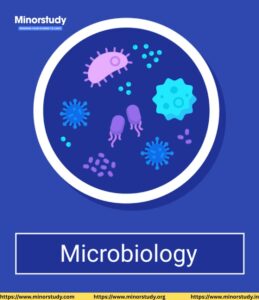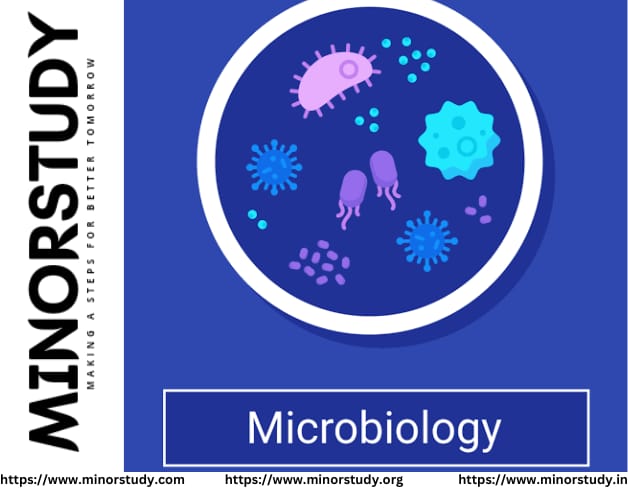🧠 Introduction: The Invisible World That Powers Our Lives
Microbiology: Look around you—whether you’re eating food, taking medicine, breathing air, or using hand sanitizer, you’re interacting with the microscopic world. These unseen organisms play critical roles in sustaining life, preventing diseases, and even helping industries thrive. This realm is called microbiology.
- 📖 What Is Microbiology?
- 🕰️ Timeline and History of Microbiology
- 🧬 Fascinating Facts About Microbiology
- ❓ Frequently Asked Questions (FAQs)
- Q1: Why is microbiology important?
- Q2: What are the applications of microbiology?
- Q3: What’s the difference between bacteria and viruses?
- Q4: Can microbiology help in fighting climate change?
- Q5: How do we study microbes?
- 🎯 7 Fascinating Ways Microbiology Impacts Your Daily Life
- 1. 🧠 Gut Health & Immunity
- 2. 💊 Antibiotics & Vaccines
- 3. 🍞 Fermented Foods
- 4. 🌾 Agricultural Boost
- 5. 🧼 Disease Prevention & Hygiene
- 6. 🔬 Industrial & Genetic Engineering
- 7. 🌍 Environmental Conservation
- 🎉 Observance of Microbiology
- 🙏 Wishing Note for Microbiology Enthusiasts
- 💡 Important Points to Remember
- 🔚 Conclusion: Embracing the Microscopic Miracle
Despite being invisible to the naked eye, microorganisms have shaped human history, health, agriculture, and technology. This article explores microbiology’s rich history, fun facts, significance, real-world impact, observance, and FAQs, presented in a human-friendly tone that emphasizes its vital importance in daily life.
📖 What Is Microbiology?
Microbiology is the scientific study of microorganisms, which includes bacteria, viruses, fungi, protozoa, and algae. It involves understanding how they live, grow, interact, and affect the environment and other organisms—including us.
Microbiology has diverse subfields, such as:
Medical Microbiology – Disease-causing microbes
Environmental Microbiology – Microbes in ecosystems
Food Microbiology – Spoilage and fermentation
Industrial Microbiology – Microbes in production of goods
Microbial Genetics & Biotechnology
🕰️ Timeline and History of Microbiology
📜 Key Milestones in Microbiology
| Year | Event |
|---|---|
| 1676 | Antonie van Leeuwenhoek discovers bacteria using a homemade microscope |
| 1796 | Edward Jenner develops first vaccine (smallpox) |
| 1857 | Louis Pasteur disproves spontaneous generation; introduces pasteurization |
| 1876 | Robert Koch identifies Bacillus anthracis as cause of anthrax |
| 1928 | Alexander Fleming discovers penicillin |
| 1953 | Watson & Crick describe DNA structure |
| 2000s | Microbiome research booms; microbial therapy explored |
🧬 Fascinating Facts About Microbiology
Your body has more microbial cells than human cells.
Microbes helped create cheese, yogurt, and alcohol for centuries.
The largest living organism is a fungal network spanning 3.5 miles.
Microbes survive in the harshest environments—volcanoes, ice, space!
Some viruses are being used to kill antibiotic-resistant bacteria.

❓ Frequently Asked Questions (FAQs)
Q1: Why is microbiology important?
It helps us understand infections, food spoilage, climate regulation, fermentation, disease prevention, and even the human gut microbiome, which affects mood, immunity, and digestion.
Q2: What are the applications of microbiology?
Medicine (vaccines, antibiotics)
Agriculture (soil health, pest control)
Industry (biofuels, enzymes)
Environment (waste treatment, oil spill cleanup)
Food (fermented products like cheese, bread, curd)
Q3: What’s the difference between bacteria and viruses?
Bacteria are living single-celled organisms.
Viruses are non-living outside hosts; they require cells to reproduce.
Q4: Can microbiology help in fighting climate change?
Yes! Microbes can digest pollutants, reduce methane emissions, and promote carbon capture.
Q5: How do we study microbes?
Using microscopes, staining, culture methods, DNA sequencing, and recently, metagenomics.
🎯 7 Fascinating Ways Microbiology Impacts Your Daily Life
1. 🧠 Gut Health & Immunity
Your gut microbiome—a community of trillions of microbes—helps digest food, create vitamins (like B12), and regulate immune responses. An imbalance can lead to obesity, depression, and allergies.
2. 💊 Antibiotics & Vaccines
Thanks to microbiology, we’ve discovered life-saving antibiotics like penicillin and vaccines for polio, flu, and COVID-19. These innovations have saved millions of lives.
3. 🍞 Fermented Foods
Microbes are behind delicious and nutritious foods like curd, yogurt, idli, dosa, cheese, bread, and even kombucha. They improve digestibility and gut flora.
4. 🌾 Agricultural Boost
Microbes fix nitrogen in soil, making nutrients available to plants. Biofertilizers and biopesticides—derived from microbes—are eco-friendly farming tools.
5. 🧼 Disease Prevention & Hygiene
Understanding germs has led to better sanitation, sterilization techniques, and the use of hand sanitizers, antibiotics, and antifungals.
6. 🔬 Industrial & Genetic Engineering
From making insulin using E. coli to developing biofuels and biodegradable plastics, microbes power innovation.
7. 🌍 Environmental Conservation
Microbes can clean oil spills, degrade plastic, and treat sewage. They play a vital role in maintaining earth’s ecosystems.
🎉 Observance of Microbiology
Although microbiology doesn’t have a single global celebration, it is recognized in several ways:
World Microbiome Day – June 27
International Microorganism Day – September 17
World Antibiotic Awareness Week – November
National Science Days in many countries highlight microbiology’s role in public health, food safety, and biotechnology.
🙏 Wishing Note for Microbiology Enthusiasts
🌿 To the scientists, researchers, and microbiologists working tirelessly in labs worldwide—we salute your brilliance!
You study the smallest life forms to make the biggest impact on human survival and prosperity. May your microscopes remain focused and your Petri dishes filled with discovery!
💡 Important Points to Remember
Microbiology is vital to health, agriculture, industry, and climate.
Most human life functions are influenced by microbes.
Vaccines, antibiotics, and probiotics are gifts from microbial research.
Food, hygiene, and medicine all depend on microbiological processes.
Future frontiers: Synthetic biology, CRISPR, and microbiome therapy.
🔚 Conclusion: Embracing the Microscopic Miracle
Whether it’s the yeast fermenting your bread or the bacteria in your gut digesting fiber, microbiology is life in motion—often invisible, yet profoundly impactful.
Understanding and respecting the microbial world can help us lead healthier lives, fight diseases, grow better crops, clean the planet, and innovate for a better future.
Microbiology reminds us that not all tiny things are to be feared—some are to be celebrated, studied, and used to advance humanity.








